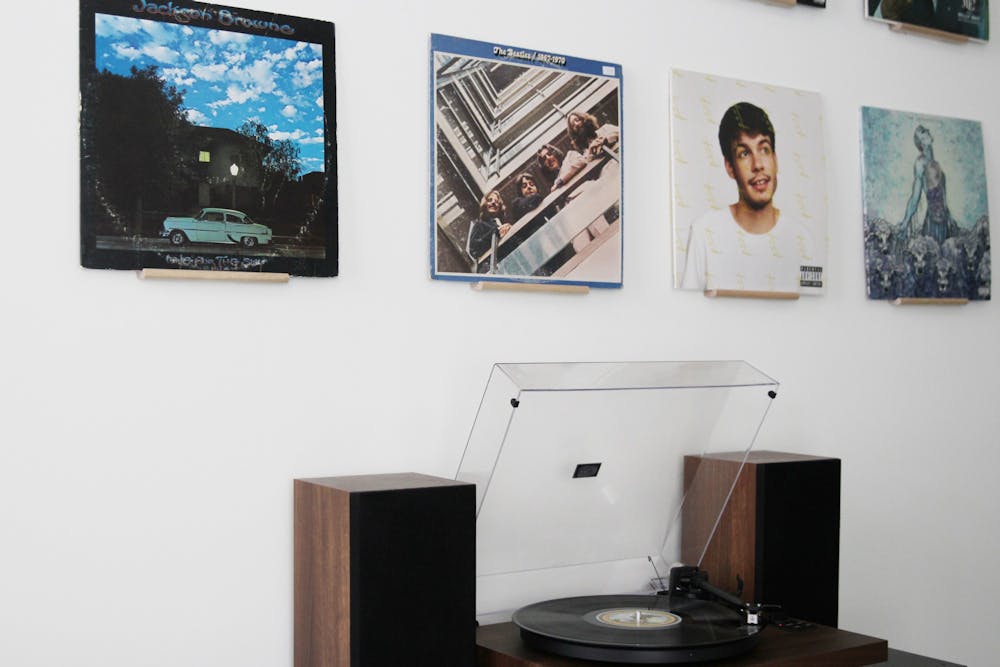Music has always saved me. It has made me who I am and influenced the way I see life — I always say that it is like my religion.
The lyrical vulnerability of Blue October's hidden track "It's Just Me" helped reassure me during my adolescence. Chester Bennington cooing, "this melody will be your guide back home," on 2010's "The Messenger" has been an antidote to my stress and heartache. A lyric in Quinn XCII's "Another Day in Paradise" actually convinced me to attend ASU.
During my freshman year at ASU, I attended 16 concerts in just six months — they were my way to decompress.
A year later, music saved me again.
During a year when I could no longer turn to concerts for the melodic reassurance that has always been vital, I had to look for another venue. So, I turned to new genres and musicians.
I set out to listen to one album per day, and by the end of the year, I had listened to 302 new albums — many of which had songs that instantly joined my all-time favorites list.
Last year, it often felt like the walls were crashing down. Feelings of isolation and anxiety came knocking at the door, and it seemed as if music was once again the only answer.
In March, I started collecting vinyl records, typically ordering one per week online. With each package arrival, I felt a sense of comfort. I had something to look forward to and provide me with a sense of stability during a time where the world seemed to be crumbling.
The first record in this new collection was Jackson Browne's "Late for the Sky," one of my favorite albums from this musical experimentation journey.
His song "For a Dancer" quickly became one of my favorite existential tracks I've ever heard, and it sounded even better on vinyl.
Every song would feel less like a tune and more like an art form as I would watch the needle strike vinyl, while holding the cover art in my hands.
As the collection grew, so did my appreciation for music and life itself. The crate of records in my room reached near capacity after a lofty and generous gift from my great uncle.
One morning in May, a box the size of a small end table arrived at the doorstep. Inside were nearly 90 vinyl records of various genres.
I cheered at the sight of The Beatles' "Let it Be." I fist-pumped after laying a finger on "Led Zeppelin IV."
My maternal grandfather passed long before I was born, and these records provided a connection to a side of my family I didn't know well enough. To know that the records in the collection were once played in the presence of my grandfather was surreal. It felt as if, though we had never met, we had something in common.
While the enormous box enclosed some of my cheapest record acquisitions, my favorite record purchase came thanks to Bright Eyes' "I'm Wide Awake, It's Morning."
I first heard the album while taking a walk through rural Nevada when I was staying with my parents since classes had gone completely virtual.
I stopped on the sidewalk, opened my phone and purchased the physical copy after hearing the sixth of 10 tracks.
There were many lessons to take away from Conor Oberst's lyricism and somber instrumentals, but the biggest came at the end of the record's musical climax: track nine, "Poison Oak."
Oberst sings, "And when I press the keys it all gets reversed, the sound of loneliness makes me happier."
That final lyric was symbolic of my experience in 2020. Despite wrestling immense, emotional isolation and having the world as I know it change vastly, there was comfort in solitude.
Thanks to music, a walk by myself felt freeing rather than smothering — the wind in my face was peaceful, not suffocating.
It was a perspective on loneliness I hadn't heard before and it taught me one of the biggest lessons in my life — always try to find a silver lining.
Reach the reporter at ghanevol@asu.edu and follow @GannonHanevold on Twitter.
Like The State Press on Facebook and follow @statepress on Twitter.
Continue supporting student journalism and donate to The State Press today.




